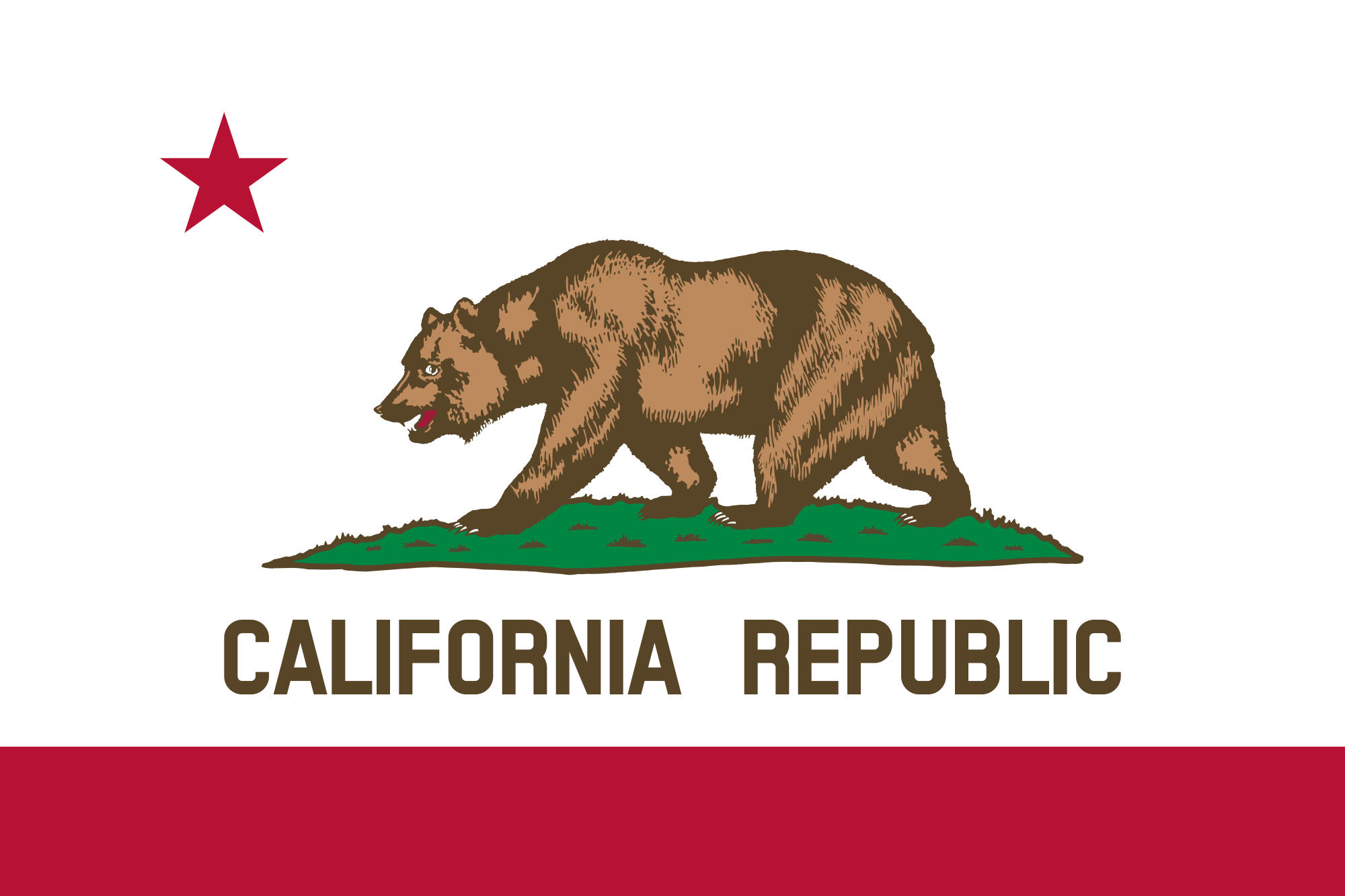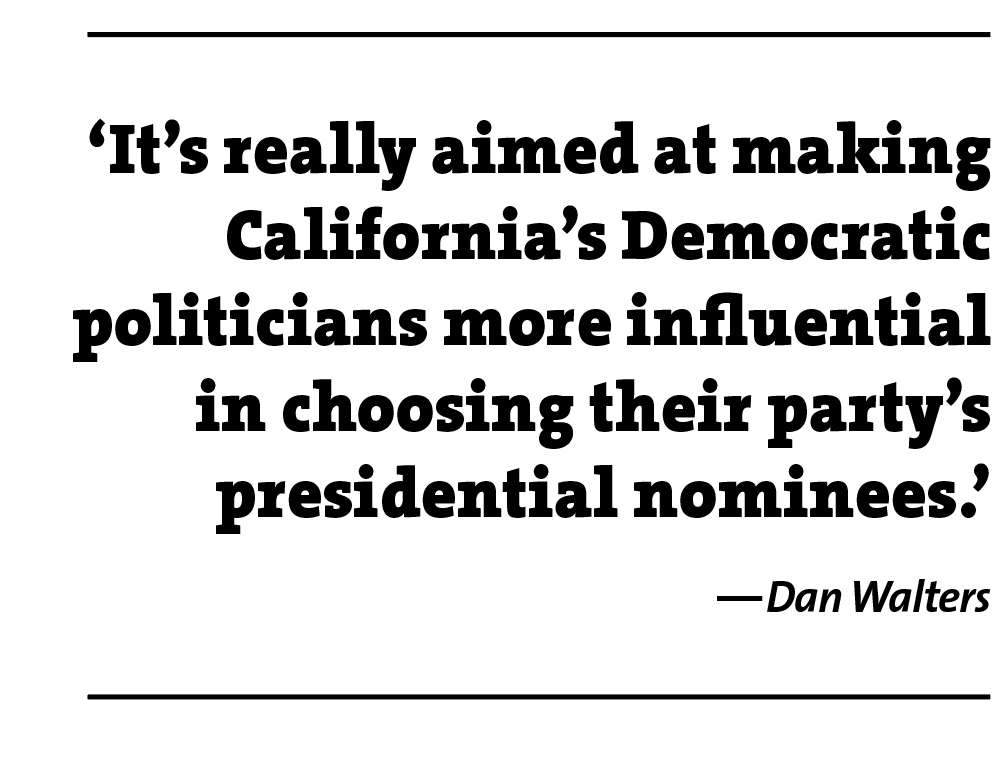Sacramento Democrats Change Timing for National Election Primary — Again
Desperate to Be Noticed, They’ve Moved Up the Date of the 2020 Primary

California politicians have moved up the date of the 2020 primary, the fifth bid in seven presidential election cycles to play a critical role in selecting nominees by jumping the line.
This time, it’ll work for sure. No doubt.
“They can change the dates all they want — we’ve tried this over and over and over, and it has not worked,” veteran state political operative and analyst Tony Quinn told Politico. “I think what you’re dealing with are politicians who don’t have any memory.”
Last week, Governor Jerry Brown signed the latest legislation intended to make California matter in presidential nominating contests, moving the primary from June to March 3, 2020 (less than 900 shopping days left!).
The stated reason for doing so, of course, is to give residents of the nation’s most populous state some meaningful input into selecting the major party candidates. In a season when voters here must endure endless stultifying reports of candidates consuming corn dogs in Iowa, driving snow plows in New Hampshire, and dog whistling in South Carolina, Californians routinely are reduced to cheering on their favorite Golden State one-percenters, throwing campaign cash at White House wannabes.
A noble explanation, to be sure, but insiders have at least two other, purely self-serving motivations for the move:
(a) It could benefit California hopefuls (hello, Eric Garcetti and Kamala Harris), and (b) It makes every state politician more important.
“Actually, making California more relevant is not its true purpose,” noted Sacto sage Dan Walters. “It’s really aimed at making California’s Democratic politicians more influential in choosing their party’s presidential nominees.”

Walk down memory lane. For two decades after World War II, the California primary reposed in June, only occasionally playing an important role in picking the candidates — Republican Barry Goldwater in ’64 and Democrat George McGovern in ’72.
In the mid-’90s, an ambitious GOP governor signed legislation moving the election to late March. Alas, President Pete Wilson never made it to the starting gate in the 1996 campaign. Four years later, Democrats were in charge, but California’s earlier primary still was irrelevant, with nominations all but decided before.
Ditto 2004. So Dems pushed the primary all the way up to February; the overwhelming importance of the early California primary was shown when Hillary Clinton stomped Barack Obama by eight points, but lost the nomination anyway (she would have been better off in the lengthy campaign if voting was in June).
By 2012, Brown and lawmakers returned the primary to June, to consolidate voting for fiscal reasons. There it stayed, until now, amid sounding of over-familiar pronouncements and sweeping claims of how California can transform national politics by use of the Gregorian calendar.
“Moving California’s presidential primary to March from June means candidates in both parties can’t treat immigration, climate change, criminal justice reform, and investing in jobs and innovation like afterthoughts, as they did too often in 2016,” said the bill’s author, State Senator Ricardo Lara (D-Bell Gardens). For the record, he was 21 years old when this game of political musical chairs started.
Bottom line. It’s hard to see a March primary having much effect on the wide-open 2020 Democratic race. For one thing, California will be among more than a dozen states, including Texas, sub-sandwiched on Super Tuesday; if a Californian runs, outsiders may not play here, discounting a win as a home-turf gimme.
Even at that, the Democrats’ arcane rules, which award delegates proportionally by congressional district, greatly dilute the impact of California; Clinton’s 2008 victory netted her a mere 38 delegates over Obama, and her popular-vote trouncing of Bernie Sanders last year gave her just 33 more than the Larry David lookalike.
Intriguingly, the more likely 2020 effect would be on the Republican side; the GOP has a modified winner-take-all system, and at least several Never-Trumpers are said to be mulling a challenge to our 46 percent 45th president.
John Kasich anyone?



